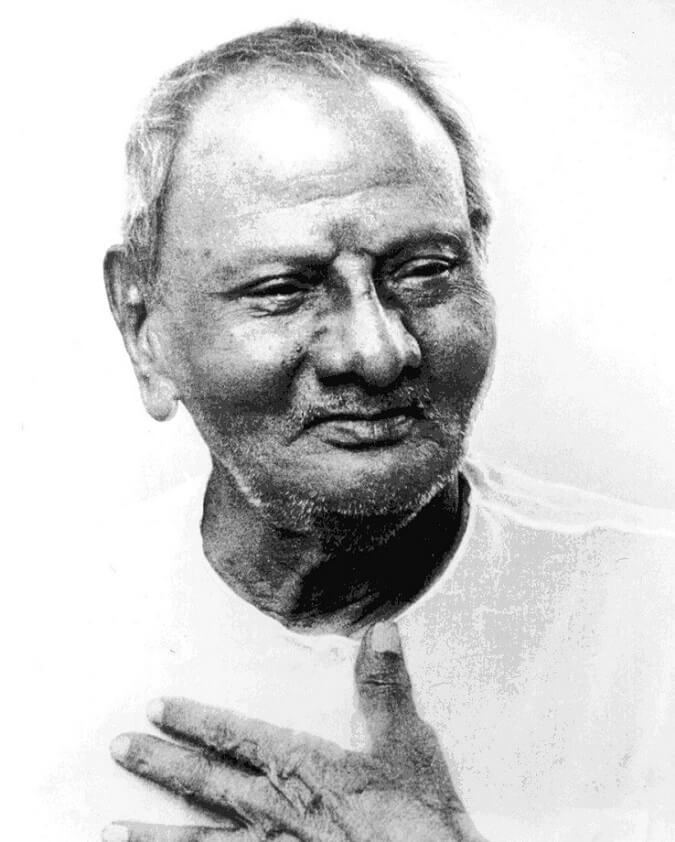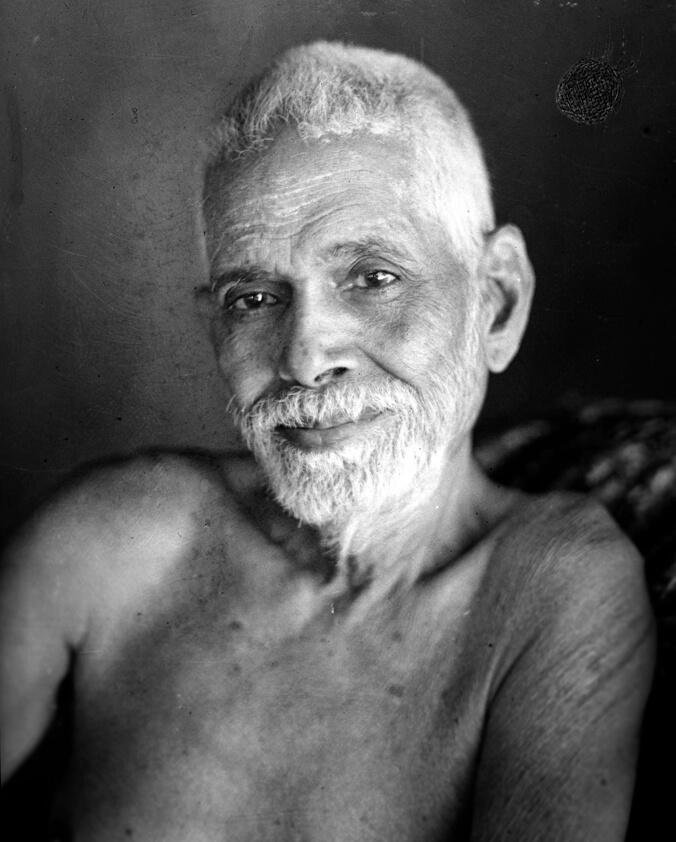Introduction
When you are on the path to self-discovery it is common for questions to arise in the mind. Nonetheless, the method of self-inquiry takes you beyond all questions and the questioner, to bring you into full recognition of your True Self.
For some, this can be very mentally draining, or even frustrating, because the questions compel your attention. So, moving beyond the questions can seem challenging and confusing.
Yet, whatever questions arise, they’re all washed away in the recognition of the Self.
For this reason, maintaining your sādhanā (spiritual practice) and remaining on the path to self-discovery, especially in times of doubt and uncertainty, is the remedy for stripping away the ego (false self).
For it is only in the realm of māyā (illusion) that these questions arise.

Often, when someone reaches out to me with a question about self-inquiry, their mind is typically looking for an answer to appease the intellect. However, one must go beyond the mind to discover the True Self.
Therefore, the answers will not come from the mind.
In fact, I have observed in myself and in others that although the philosophical and intellectual aspects of spirituality can bring insight, without the practice, one is unlikely to transcend the ego.
What does it mean to transcend the ego? Seeing that the ego is unreal and that the Self alone exists.
So, I want to share the most common questions that I’m asked about self-inquiry, which typically fall into one of these 3 themes.
If you are new to the method of self-inquiry, please read An Introduction to Self-Inquiry.
Going Beyond the Questioner
Question 1: How do I maintain a peaceful state? Why don’t I feel blissful? Self-inquiry is frustrating.
Theory
Bliss and peace are naturally present when illusions (māyā) are dispelled. However, do not be confused by thinking you are these states. You are beyond all conditions; the physical, mental, and emotional all arise in you and through you. So, although the consciousness may take the shape of frustration or peace, this too is witnessed by you.
Frustration, peace, and bliss are observable phenomena.
Sat-chit-ānanda, representing “beingness, consciousness, and bliss”, describes the nature of reality, and these are the qualities of Brahman (the Absolute). So, whenever you are not at peace, it is an indication that the consciousness has gravitated toward māyā (illusion) and is wearing the mask of ego (the false self).
So, just as clouds can appear to cover the sky, various emotional and mental states appear to cover your essence, but the sky is still there, unmoved. When you abide in the truth of your being, all states can come and go: anger, depression, excitement, bliss, etc., but you are the immutable and formless Self.
The confusion lies in believing that you are bliss or peace. It is only said that these qualities describe the Self, that which is beyond description, name, and form. It is not said that these qualities are the self.
To be clear, beingness, consciousness, and bliss are perceptible and experiential qualities. In truth, Brahman cannot be defined. It is like the common Zen saying: the finger pointing at the moon, if you look at the finger, you miss the moon. So, if you look at the finger, in this case; sat-chit-ānanda, you will miss the moon; Brahman.
Peace and bliss are not Brahman but naturally occur when the web of māyā is unraveled. In other words, when identification with ego is withdrawn, suffering ceases. What remains then is unassociated beingness, pure consciousness, and effortless bliss, aka sat-chit- ānanda.
Practice to Go Beyond the Questioner
When frustration or unpleasant emotions arise, bring them into your inquiry. Look and see to whom does frustration arise? The frustration itself is a distraction arising in the mind. So, witness and observe it. The thought, I don’t feel peaceful or blissful, is coming from the mind so just watch it.

Sri Nisargadatta Maharaj said:
“Sat-chit-ananda will, in due course, become the Paramatman (Supreme Self).
Sat-chit-ananda is ‘I Amness’ and is itself a state of bliss, a state of love, but it is an experiential state, so long as consciousness is there, and consciousness is there so long as the body is available – it is a time-bound state.
You must transcend the sat-chit-ananda state.”
Therefore, whatever state arises, is not you because you are the one who witnesses it. Bliss and peace are states and all states are transient. You are beyond even bliss; your Self is changeless. Beingness and consciousness are also observable.
Therefore, keep your attention on the one who is effortlessly aware of all comings and goings of different states.
Furthermore, when there are intense, restless, and chaotic energies, sitting through them and observing them, quells them. Notice the energy and see where it arises from. Make it the focal point of your inquiry. Recognize that it is observable.
When you witness it, it will not have the power to pull you in.
I used to suffer a lot from anxiety and depression, and the more I brought these states into my inquiry and witnessed them, I noticed that they began to lessen. Eventually, they dissolved altogether. With that said, do not make dissolving uncomfortable states a goal. Simply observe.
Moreover, do not be attached to peace or bliss. Instead, continue to be the witness of whatever experience arises. Let peace and bliss take care of themselves. You don’t need to cultivate them; they are uncreated and natural qualities of your True Being. Rather, just see what is currently standing in the way of them.
Related articles: Discover the Bliss Beyond Bliss and Find Your Center in Difficult Times

Question 2: Why do I experience the body (and pain) if I am not the body?
Theory
Just because you experience the body, does not mean this is who you are. Again, this isn’t something you can simply grasp intellectually. Self-inquiry is the means to bring about this realization.
While you experience the body and the mind, you are also aware of both. You are not either because you are observing and perceiving the body-mind. So, emotions and physical pain will come and go.
They arise and pass, but the you who witness mind and body is beyond all pain.
Once, I asked my mind to throw its best punch and immediately my attention went straight to the body, and the thought “I am this body” came. Then, the mind began to race, and distractions kept coming, followed by a sense of tiredness and exhaustion.
Afterward, the thought “now what?” entered my mind and distractions arose again. I observed this cycle repeat again and again until the thought “I am not free” came. This seems to be the trouble: the belief “I am not free”, but even this is seen and watched in the field of awareness.
All the suffering: anxiety, depression, physical pain, and so forth are caused by the belief that you are the body-mind. Yet, there is a space within you that is unbound which witnesses all the manifestations, and it is not in the realm of the body-mind.
Related article: Awaken Within The Light of Depression

Practice to Go Beyond the Questioner
Look around at the objects in your current surroundings. Anything you see, you can point to and say, “this is an object” and you are aware of it. You are not the object itself. Likewise, when it comes to the body and mind, this you are also aware of.
Pain, pleasure, and emotional turmoil are all objects. They are not you. In the same way, you can experience the world visually, you can experience pain physically. They are simply different experiences, and you would not say that you are a chair or a car or a window, likewise, do not say you are back pain or sadness. These are all objects arising in your field of awareness.
The more you witness what you experience, the more you can discern yourself from the objects you perceive. While it is obvious that a chair or table is not you, it may not be obvious yet that the body and the sensations arising in it, are also not you.
In time, more subtle forms will be perceptible like thoughts, emotions, your attention, and even consciousness itself will be observable. Do not strive for this, just stick to the inquiry, and make whatever disturbance that comes up, the object of your inquiry.
Question 3: How do I know my inquiry is complete? Do I need a teacher/guru? I keep falling into doubt and confusion.
Theory
Sometimes your mind will step in and give you a hard time about the way things ought to be, and this is doubt. The mind will say, “you ought to find a guru” or “you haven’t gone all the way” or “you still behave as ego”. Thoughts like this can be paralyzing but the thoughts are only secondary to doubt.
A sincere teacher can point out what your mind is doing and how it is creating doubt. However, if your mind is very suspicious then doubts may still come because you will doubt the teacher. So, no one can solve your doubts for you because your freedom is something that only you can affirm for yourself.
The Buddha’s final hurdle was doubt. It was the final obstacle he overcame. When the Buddha meditated under the bodhi tree, the demon Mara brought various desires to tempt him. When Mara saw that the Buddha was unmoved, Mara questioned his worthiness to attain liberation.
Again, the Buddha was unmoved and said to Mara, I bear witness to you. It was then, Mara left him, and the Buddha attained liberation.
To clarify, you bear witness to the doubts and doubt can come in many forms. In my own experience, I was always wanting the approval of a teacher. I believed I needed someone to tell me that I had arrived or that I was worthy. This too is doubt.

Practice to Go Beyond the Questioner
The Buddhist monk, Ajahn Chah, said that when doubts arise, just say this is doubt. When I started to do this, I began to see just how many doubts were in my mind. Before doubts gain power, they start off small but if you give them your attention, they begin to grow bigger and bigger.
In fact, the more you believe your doubts, the more they appear to carry meaning and validity. However, how can there be doubts for the Self?
Sri Ramana Maharshi said:
“All doubts will cease only when the doubter and his source has been found.
There is no use removing doubts one by one. If we clear one doubt, another doubt will arise and there will be no end of doubts.
But if, by seeking the source of the doubter, the doubter is found to be really non-existent, then all doubts will cease.”

So, this is the practice, to recognize doubts when they arise and to seek the source of the doubter. Look and see, to whom does doubt arise? Where do they arise from? Intently look and the doubts themselves will dissolve.
Conclusion: Beyond the Questioner
I always found self-inquiry to be the most natural practice. To me, it is the most refined and simplest path to freedom. So, whenever any questions came up, naturally, the questions became the objects of my inquiry.
Self-inquiry will take you beyond the questioner. As you continue observing yourself beyond thought, questions begin to fall away because they are also thoughts and are seen as no longer useful.
A thought will only pull your attention when it interests you. Otherwise, the thought will not resonate inside you. Therefore, what is more important is to put your attention on the one who observes the thoughts/questions arising in the mind.
In truth, you are already what you seek but right now the mind is pulling your attention, and there is the tendency to identify with the mind. However, when you start to see that all the questions and doubts are simply movements of the mind, just remain unmoved and bear witness to them.
Notice where the questions arise from and to whom they arise. Are you the questioner? Find out. Go to the source. Then, see what remains.
Continue to seek the source of thoughts as they come and go.
Also, remember, the answers you seek will not come through thought, because what you’re discovering is beyond the mind. As a result, intellectual understanding can be a hindrance. So, don’t try to understand truth on the level of mind.
When your inquiry is sincere, grace will guide you.
You don’t need to have all the answers, it is the mind that wants more answers. Just be patient, let go of expectations, and abide as the witness of your experience. Witness, observe and rest in the awareness of what you encounter.
May you be happy and free,
Ravelle
If you found value in this post, join my email list for updates, new teachings, and free resources.
Related Articles
An Introduction to Self-Inquiry
Discover the Bliss Beyond Bliss


This is so simply and beautifully explained. I’m finding it so helpful! I’ve read it three times because it really hits home. I love how clearly you explain the truth of life. I will be sharing this! 🙏
Thank you kindly, Jackie! I am so grateful for your feedback and I’m glad you found it helpful 🙂 I am also appreciative of you sharing it 🙏 Endless love 💜
So interesting! Thank you for sharing these questions. They were very insightful.
Thank you, Kim. So happy you found it to be insightful! May you be happy and well 🙏💜
Thank you for sharing this. It really clarified some of the questions I had about self inquiry. As always, your writing is beautiful and I am always grateful to learn from you ♥️
I’m delighted to know you found value in this post! I appreciate your kind words about my writing. May you always be happy and well! 🙂🙏💜